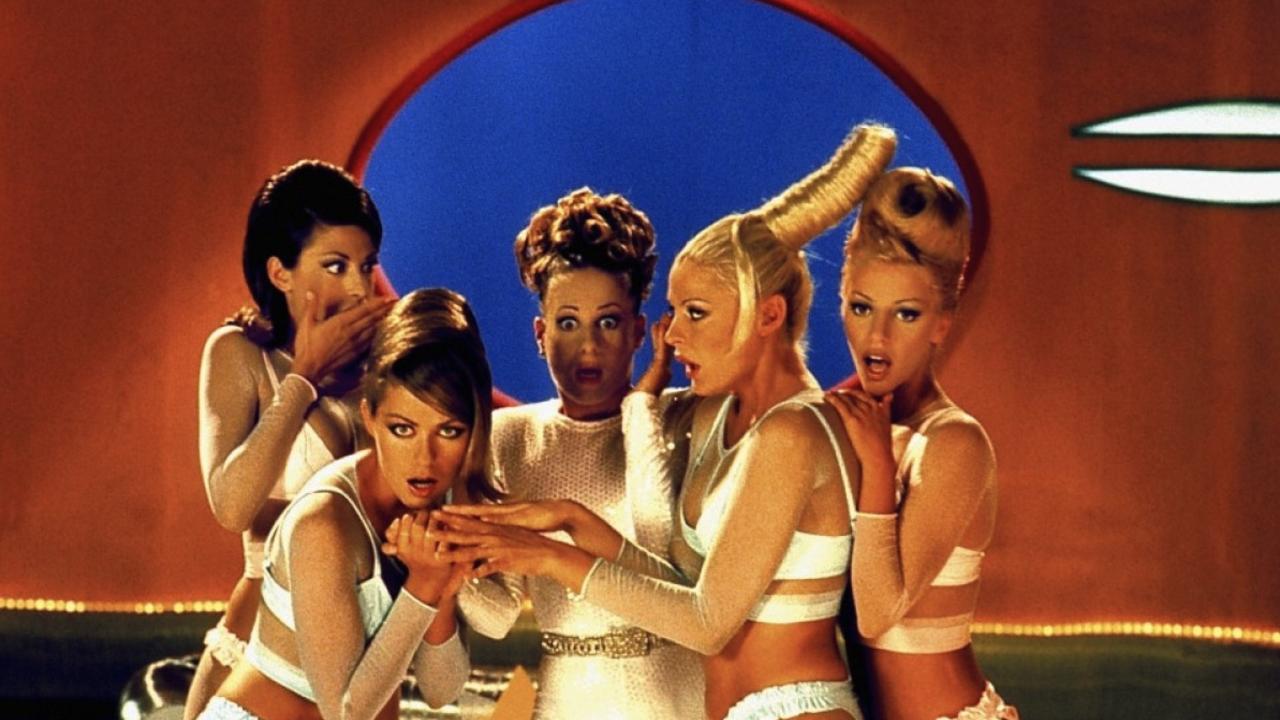
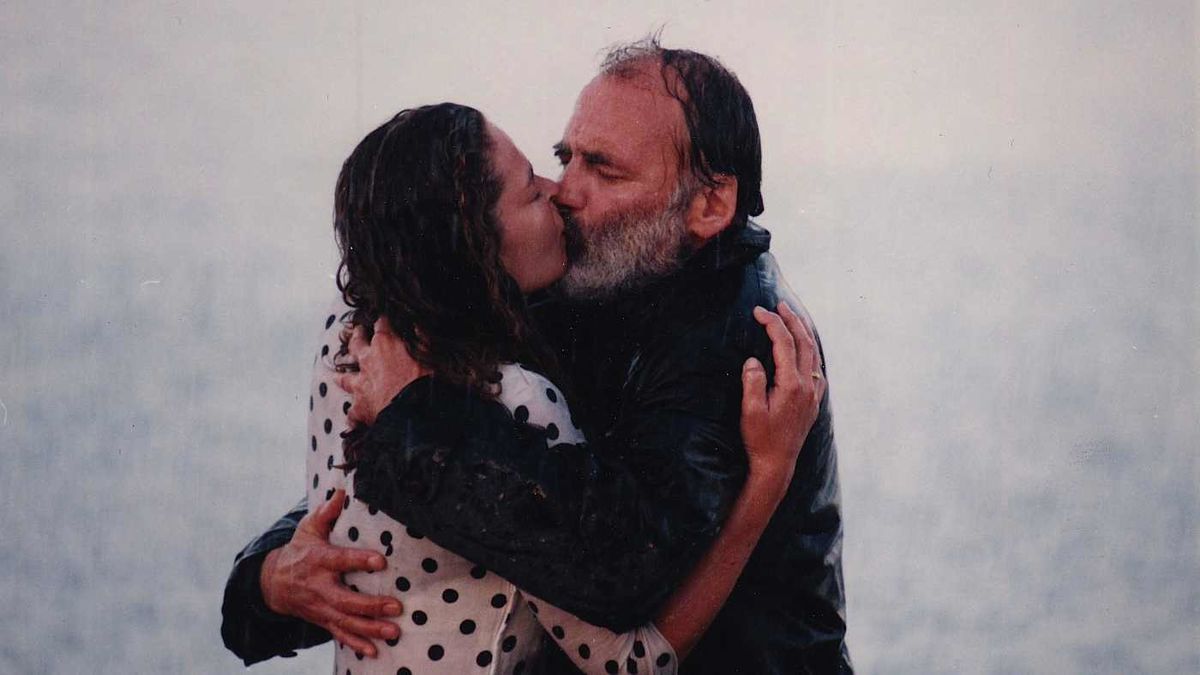
In 2011, not too long after the release of Yorgos Lanthimos’ Dogtooth (2009) and Athina Rachel Tsangiri’s Attenberg (2011), Guardian film critic Steve Rose coined the term “Greek Weird Wave.” Though the label quickly took on a life of its own, and, for a time, perhaps accurately described the type of films that were coming out of Greece at the time—surreal, absurdist storytelling laced with dark humour and thorny critiques of the country post-2009 financial crisis (to put it broadly)—the term quickly became the go-to way of reducing Greek cinema into a single neat, digestible package.
On the contrary, what Greek cinema has to offer and indeed has offered for over a century of national filmmaking (Konstadinos Bahatoris’ 1911 silent film Golfo is generally regarded as being the first feature length Greek film) reaches far beyond the confines of the Weird Wave. Even those who supposedly pioneered the movement, including Lanthimos himself, have rejected the label.
To celebrate Greek Week at A Rabbit’s Foot, we’ve compiled a starter-pack of non-weird wave films that include films from master filmmaker Theo Angelopoulos, Greece’s first female director Maria Plyta, Panos H. Koutras (who himself would go on to be regarded as a Weird Wave filmmaker) and contemporary gems from Tzeli Hadjidimitriou and Kostis Charamountanis.
A filmmaker whose work has been cited as an influence on Martin Scorsese himself, Theo Angelopoulos renown reached far beyond his native Greece. His films Ulysses Gaze, Landscape in The Midst and The Travelling Players are masterful, but it’s lyrical Palme d’Or winner Eternity and a Day that makes for the perfect entry-point to the work of, arguably, the greatest Greek filmmaker of all time.

Eternity and a Day (dir. Theo Angelopoulos, 1998)
A favourite of Yorgos Lanthimos that was long-banned in Greece due to its transgressive critique of Greek society, Thanos and Despina is a whirling satire that follows an impoverished woman struggling to convince a wealthy landowner to give his blessing to marry her son off to his daughter.
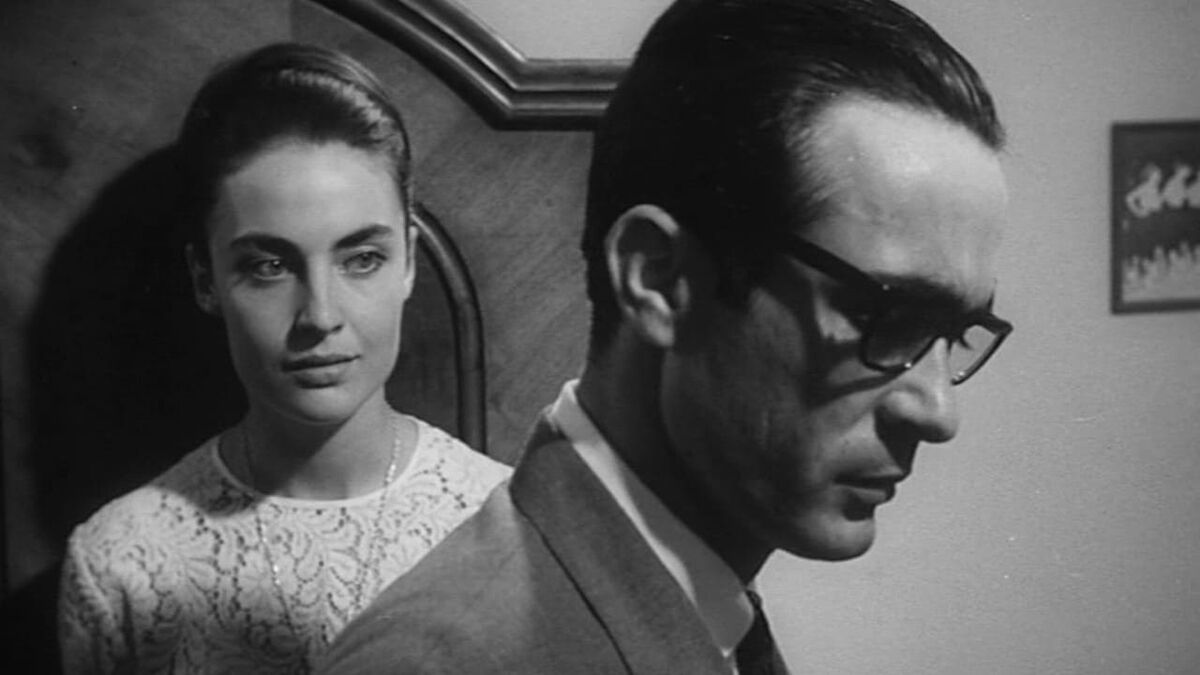
Thanos and Despina (dir. Nikos Papatakis, 1967)
Known as Greece’s first woman filmmaker, many of Maria Plyta’s movies have been lost in time, with Plyta herself largely absent from accounts on Greek film history. Her sophomore film The She-Wolf perfectly expresses the pioneering director’s nuanced handling of the female experience, just one of an entire filmography of criminally overlooked texts.
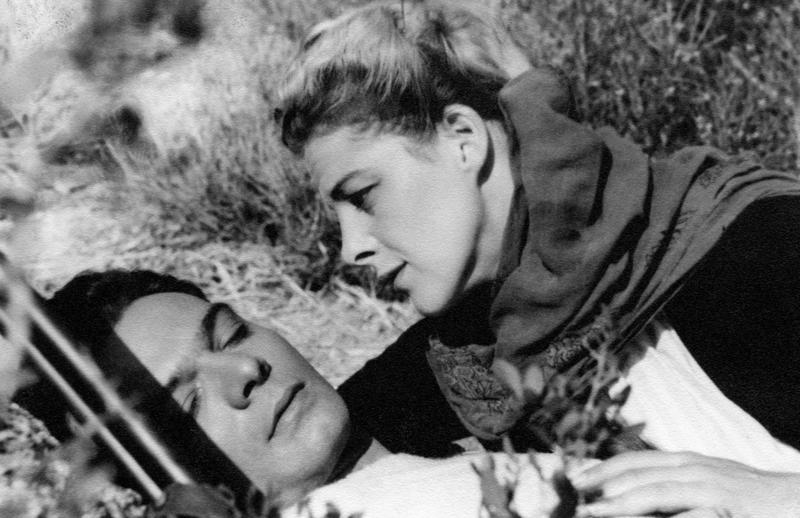
The She-Wolf (dir. Maria Plyta, 1951)
Perhaps better known for his more recent films like Strella and Dodo, cult queer filmmaker Panos H. Koutras first made waves with this sci-fi parody that sees a giant moussaka rage through the city of Athens. The film has since become a cult classic in Japan.

The Attack of the Giant Mousaka (dir. Panos H. Koutras, 1999)
Named after the traditional music genre, Rembetiko follows iconic rebetiko singer Marika Ninou over 40 years of her turbulent career, with Ferris charting the history of Greece alongside her. The feature won the Silver Bear at 34th International Berlin Film Festival.
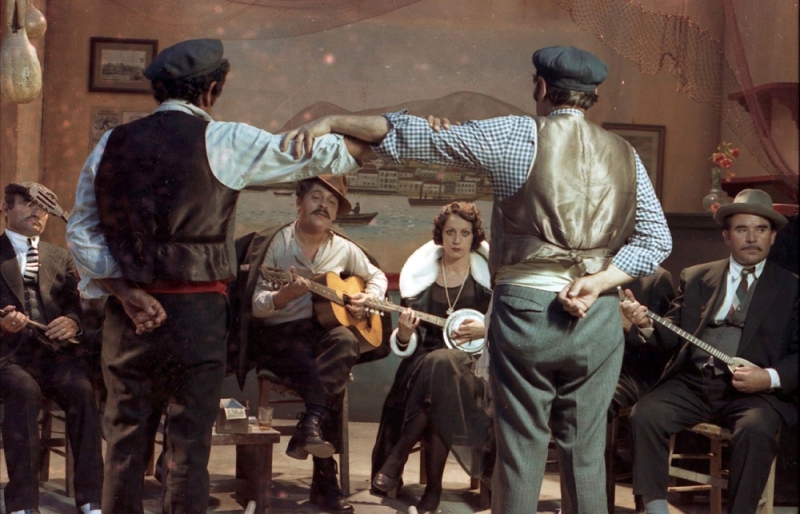
Rembetiko (dir. Costas Ferris, 1983)
Tzeli Hadjidimitriou explores the clash of queer identity between locals and expats in this documentary about the island of Lesvos—the birthplace of ancient Greek poet Sappho—which, since the 1970s, has been a haven for lesbian communities around the world

Lesvia (dir. Tzeli Hadjidimitriou, 2024)
An adaptation of Euripides’ ancient Greek tragedy of the same name that’s fronted by a spellbinding performance by Irene Papas as the titular character, the child of a murdered king who, along with her siblings, seek revenge for her father’s death.
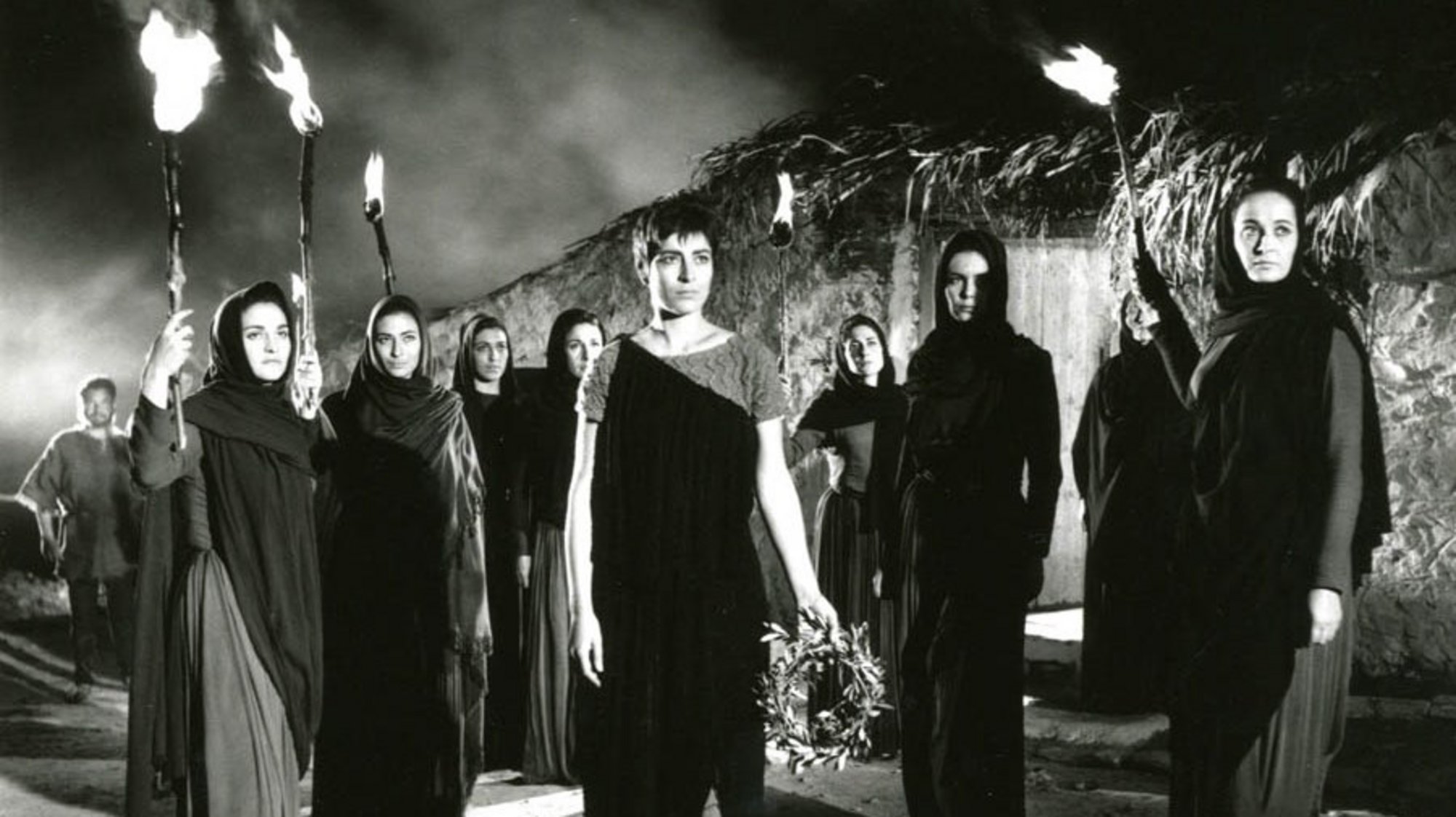
Electra (dir. Mihalis Kakogiannis, 1962)
Actor and director Alexis Damianos’ most famous film is a modern Greek tragedy rich with political commentary, following a military man and a prostitute who fall in love, and must soon deal with the consequences of their societally frowned-upon affair.
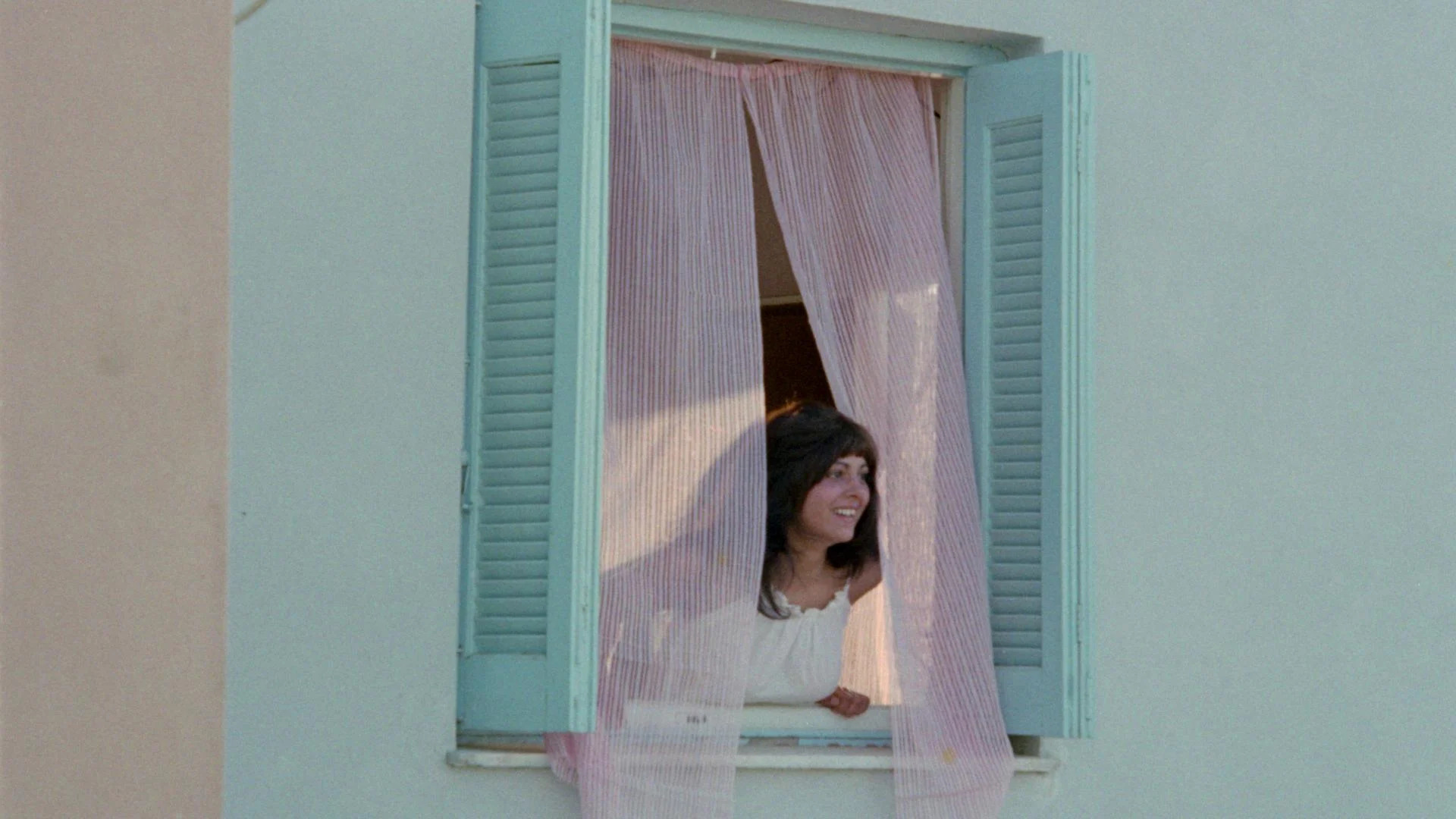
Evdokia (dir. Alexis Damianos, 1971)
If you’re a fan of the mistaken identity genre, look no further than this hidden gem from Nikos Koundouris, which follows a peaceful, timid man who is forced into ruling a criminal empire after being mistakenly identified as notorious criminal “The Dragon.”

The Ogre of Athens (dir. Nikos Koundouros, 1956)
Set on Greece’s current island hotspot Paros, Kostis Charamountanis’ bittersweet coming of age dramedy follows a single father and his twin children who, during their Summer vacation, encounter the birth mother who abandoned them when they were born.

Kyuka: Before Summer’s End (dir. Kostis Charamountanis, 2024)
Among Greek cinephiles, actor-turned-director Stavros Tsiolis’ Let The Women Wait!, following the romantic adventures of three brothers over the course of a Summer at Lake Volvi, has been hailed as an unsung masterpiece, though an understanding of the language is recommended to catch all the nuances of its humour.
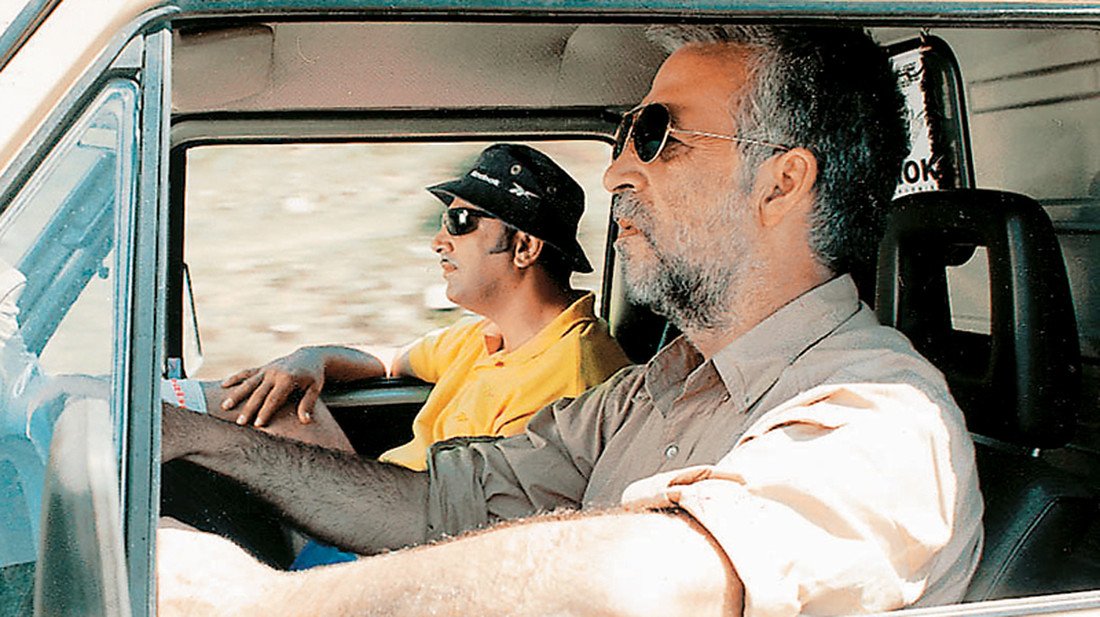
Let the Women Wait! (dir. Stavros Tsiolis, 1998)





